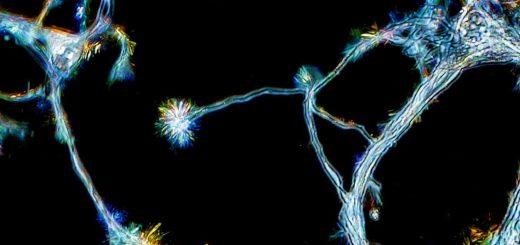Ancient viruses in the human genome linked to mental health conditions
People with higher genetic risk for depression, schizophrenia and bipolar disorder are more likely to have unusual activity levels of “fossil viruses” in their genomes
By Clare Wilson
22 May 2024
Human endogenous retroviruses are remnants of viral genes in the human genome
NICOLLE R. FULLER/SCIENCE PHOTO LIBRARY
Ancient viruses embedded in human DNA millions of years ago may play a role in raising people’s risks of depression, schizophrenia and bipolar disorder. The viral genes have unusual activity levels in people who have a higher genetic risk of experiencing these mental health conditions, a study has found.
Retroviruses are a large group of viruses whose life cycle involves inserting their genetic information into the DNA of their host. Remnants of such viral genes can be seen in the DNA of many animal species, and these sequences are called human endogenous retroviruses (HERVs) when found in the human genome.
Until recently, most HERVs were thought to remain dormant and were called “fossil viruses”. But previous studies have suggested that some of the viral genes may in fact be active – although not producing infectious viruses – and may even play a role in neurological conditions, such as multiple sclerosis.
Advertisement
Read more
Why the causes of poor mental health may share a common root
In a new study, Timothy Powell at King’s College London and his colleagues investigated the possible role of these viral remnants in mental health conditions by looking at viral proteins in nearly 800 brains that had been donated for medical research.
While the team didn’t record if any of the donors had been diagnosed with mental health conditions while alive, they found that some genetic variants that are known to raise the risks of depression, schizophrenia and bipolar disorder were associated with altered activity of genes from five different HERVs.


